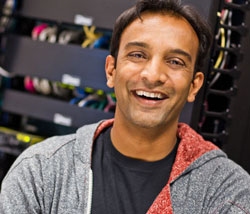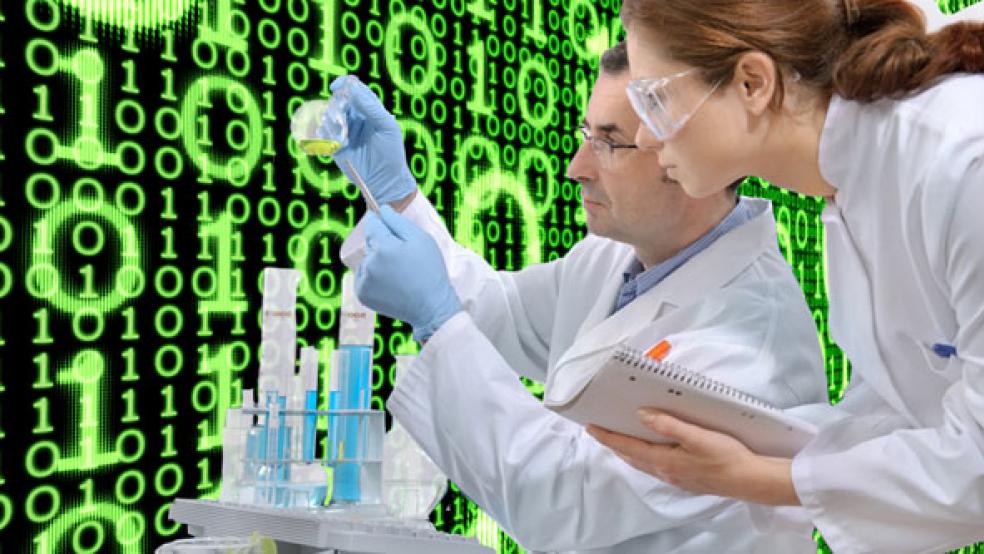You know there’s been a disruptive cultural shift when a nerdy top data scientist calls himself “sexy” – and gets away with it.
D.J. Patil, chief data scientist at Greylock Partners, made the claim in a piece he co-authored for the Harvard Business Review a couple of months ago entitled, “Data Scientist: The Sexiest Job of the 21st Century.” The article, an overview of the job and the market forces that have created it, was partly in response to comments made by Hal Varian, Google’s chief economist, who exclaimed, “The sexy job of the next 10 years will be statisticians. People think I’m joking, but who would’ve guessed that computer engineers would be sexy?”
As massive new sources of data and the ability to analyze them create enormous promise for business and government, the job of data scientist is hot in the new economy. Merging statistics, computer science, analytics and visualization, the job encompasses everything from social networks and data systems to information architecture and risk management.
RELATED: How You're Shaping the Future Through 'Big Data'
For example, data scientists at EMC, the data storage products and services company, design information security systems and cloud computing applications. eBay is just one of many clients that use the company’s software to store and manage information – in eBay’s case, more than 500 million objects listed on its site. The JFK Archive also runs on EMC infrastructure and includes 8.4 million pages of personal, congressional and presidential papers as well as 40 million pages from individuals associated with the Kennedy administration.
With political elections now steeped in data as never before, modern campaigns are also increasingly using micro-targeting methods to customize their messenging to specific groups and subgroups of voters, as designed and driven by data scientists – the Obama 2012 election victory being the most recent prime example.
“Think of [the position] as a hybrid of data hacker, analyst, communicator and trusted adviser,” says Patil. “The combination is extremely powerful – and rare. There simply aren’t a lot of people with the combination of scientific background and computational and analytical skills.”
At least right now, that is. Given the high demand by companies and government groups of all kinds for this new specialty, Greylock Partners, his current employer, an early-stage venture firm, has built a recruiting team just to “channel talent to businesses in its portfolio.”
In an interview with The Fiscal Times, Patil shared other key insights on the hot new job trend.
Why It’s Now Taken a ‘Front Seat’
“Consider the success of Moneyball, the prediction of the elections, and the success in predicting Hurricane Sandy,” he says. “We’ve started to see the impact of data. It’s gone far beyond targeting customers and is now about building data products that benefit the customer.” One of the best examples of this is Google’s self-driving car, says Patil. “It’s a data product. It takes lots of data in and processes it very quickly to produce a safe ride.”
What’s Most Exciting About Data Science
“It’s the ability for data products to improve people’s lives. A great example of this is forecasting Hurricane Sandy. We’re also beginning to see people use data to better track their health, by using, for example, the Jawbone UP. [The gadget, worn on the wrist, measures and analyzes sleeping, eating and moving patterns so that consumers clearly understand their activity levels and can take better control of their health and physical fitness.] We’re also starting to see improvements in genomic analysis,” a field that includes advances in DNA sequencing, giving scientists the ability to understand genetic information from any given biological system.
What’s Most Worrisome About Data Science
“We’re in an arms race against people who are trying to breach security systems. We’re seeing some very sophisticated data products, so we need to have a better conversation about issues of privacy and the appropriate use of data by the government. As data becomes more prevalent, we’re going to have an open conversation around this.”
Best Ways to Educate Young People for the Field
“Students need a great foundation in mathematics, statistics, and computer science,” says Patil. “That isn’t enough, however. Domain expertise is also required. Students need to have another multidisciplinary area – for example, biology or physics. Essentially, everyone needs a multidisciplinary degree.” 
Recommended Programs
“Online programs like Coursera and Udacity are doing a great job of enabling so many people to be trained in areas like machine learning. I’m also excited for programs like the Insights Data Science Fellowship program [based in Silicon Valley], which takes people with advanced degrees and brings them together for five weeks to work on programs so they can transition quickly to data science roles.”
Most Important Skill for Data Scientists
That would be “their ability to create narrative – to create story telling. Data by itself is cold,” says Patil. “It is the human that makes it come alive and be useful.”
Dream Goal for the Field
“One of the greatest uses of data would be to help people understand their health and then to take proactive actions.”
Why Humans Won’t Be Replaced
“We need to focus on keeping the human element in the data process. The classic image we have is that a computer is going to replace a human. That’s just not going to work. Think of a computer replacing a doctor, for example. We need to focus on using data to augment, not replace, humans. The goal of data products is to make us more efficient. A great data product helps make the doctor faster and more efficient.”





